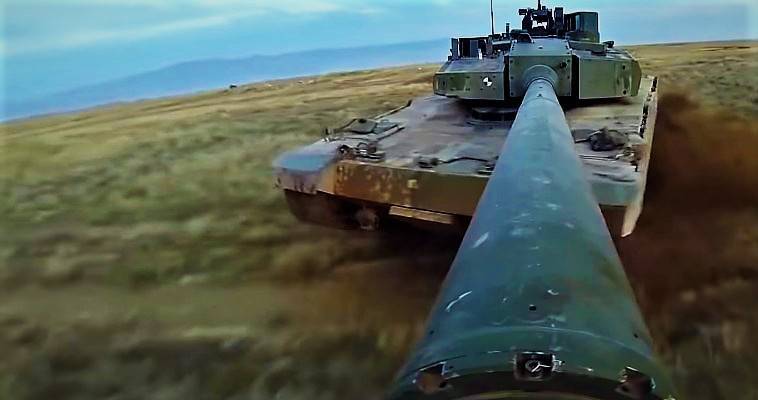Kostas Melas: What the numbers say about the Turkish defense industry
10/07/2020
The development of Turkish defense industry and technology was about 20 years in the making, but in the end it seems to have paid off. Of course, it may not correspond to the impressive picture that Ankara wants to present, but it is at a satisfactory level, in order to strengthen the power of the Turkish Armed Forces. At the same time, however, it is having multiplier effects on the economy.
We should not assume that Turkey has gained autonomy in the production of weapons systems, as much of the technology used is imported. We estimate that its added value should not exceed 40%. After all, the required raw materials, semi-finished products, and a range of components that are necessary for the creation of the final products are all imported!
Of course, the development of the Turkish defense industry offers significant degrees of freedom, in the sense that it can proceed with the production of the desired quantities, without the need for the approval of each supplier. At the same time – and this is perhaps most important – the Turkish defense industry has the technology and know-how to freely and willingly develop new versions with better performance and operational features.
A simple comparison with what is happening in Greece makes the difference understandable. In Greece, there is no planning for the national defense industry. Technology and weapons systems are imported from abroad. The very low to insignificant added value of the Greek defense industry does not create multiplier effects on GDP growth, while, due to imports, it, actually, burdens it. In simple words, while in Turkey there is a contribution from defense industry to GDP growth, in Greece, financially, it actually works as debit.
Turkish Defense Industry – Propaganda and Reality
It should be noted, however, that we must not fall into the trap of Turkish propaganda regarding the achievements of the Turkish defense industry. However, it should be noted that although it designs and develops technologically modern weapons systems, this does not mean that they become part of the Turkish arsenal immediately and in large numbers.
In fact, most of the weapons systems produced by the Turkish defense industry have not been included in the Turkish arsenal, nor have the contracts for their acquisition been signed – at least not yet. This means that in this area, too, there is an over-ambitious persistence, coming mainly from Erdogan himself.
The Turkish president is using the achievements of the defense industry both to boost self-confidence and a sense of greatness in Turkish society, the benefits of which he garners politically and electorally, as well as for diplomatic reasons. After all, the largest Turkish defense industries are now under his direct or indirect control.
Imports, exports and meeting needs
Here are some facts about the Turkish defense industry. According to a report by the Defense and Aerospace Industry Manufacturers Association, in 2019 the sector’s revenue was $ 10.9 billion, up 24% from 2018 ($ 8.8 billion). Exports amounted to $ 3 billion and were up 40% from 2018 ($ 2.2 billion). But imports in the sector also increased. In fact, they exceeded the amount of the respective exports: they increased to $ 3.1 billion up by 28% compared to 2018 ($ 2.4 billion).
These figures show the great dependence of the Turkish defense industry on imports of raw materials, semi-finished and finished products. Expenditure on Research and Development increased by 15% (2019: $ 1.7 billion compared to $ 1.4 billion in 2018). Expenditures on high-tech defense industry in particular have risen sharply.
The new orders in 2019, amounting to $ 10.7 billion, were reduced by 12% compared to 2018. According to analysts’ estimates, today the Turkish defense sector is able to meet 90% of domestic demand (ie Turkish Armed Forces and Security Forces). In other words, it is very close to the saturation point. The need to increase exports is now essential after the great expansion of the Turkish defense industry over the last 20 years, and especially after 2016 under Erdogan’s direct guidance.
Today, about 50,000 persons are employed in Turkish defense industries. In recent years, there has also been an increase in exports of Turkish-made systems, as a result of the efforts of Turkish defense industries to survive in a highly competitive international environment, where they are facing very large defense industries.





